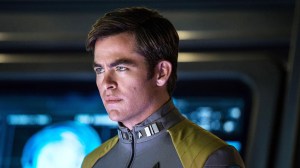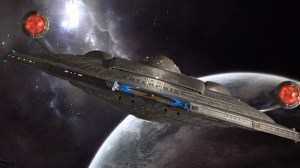For over half a century, Star Trek has been boldly exploring the outer limits of its IP. It’s hard to believe that what began as a humble network TV series in the 1960s is now a major blockbuster franchise with fourteen feature films under its belt. Many of Star Trek’s movie entries are considered classics of the genre, but not all of them were created equal, and a few are straight-up bad.
Videos by ComicBook.com
The movies expand Trek beyond its television limitations, with bigger budgets that bring bigger spectacle. They stand alone as contained stories, carrying fully formed arcs and satisfying conclusions that the series don’t always offer. But when comparing them, you have to consider factors such as performances, writing, and cinematography, while simultaneously weighing things like VFX based on each film’s historical context. While any devout Trekkie likely has their own personal favorites, we’ve compiled a complete ranking of big-screen Trek from worst to best.
14) Star Trek: Section 31

Michelle Yeoh’s spinoff arrived on Paramount+ in January 2025, without a theatrical release. The marketing for Section 31 claimed it as a gritty espionage thriller, covering rogue admirals and the black-ops of Starfleet. Yeoh gave it her best; her Philippa Georgiou was sharp, dangerous, but the movie struggled to find its footing.
It lands awkwardly, as something closer to a cheap MCU ripoff than The Wrath of Khan. A missed opportunity, it currently sits near the bottom of most rankings, if it’s even counted at all. And as the critics’ consensus on Rotten Tomatoes reads, “Beam it out of here, Scotty.”
13) Star Trek V: The Final Frontier
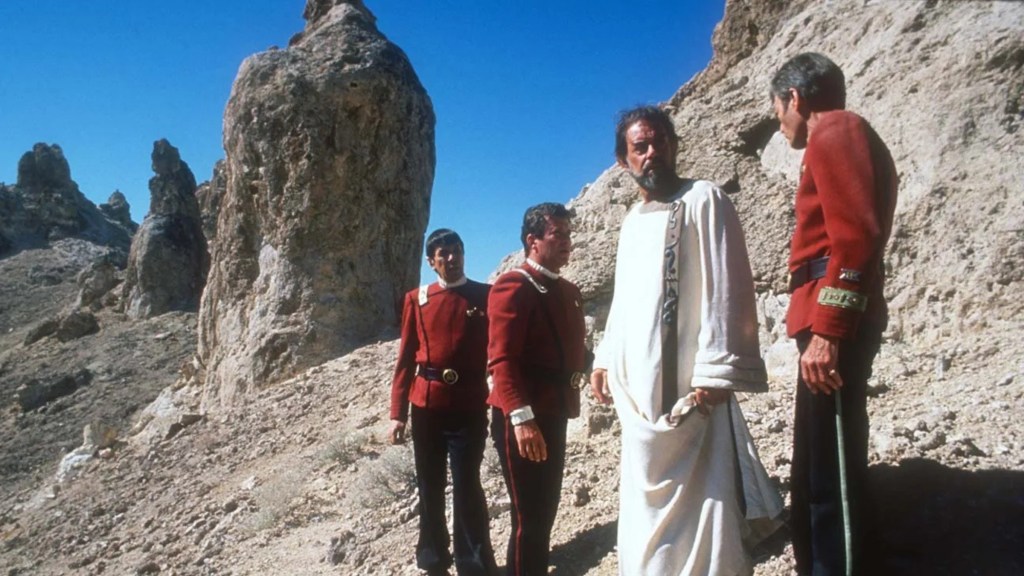
William Shatner stepped into the director’s chair for Trek 5, intending to craft a spiritual epic featuring Spock’s half-brother Sybok hijacking the Enterprise in search of so-called “God” at the center of the galaxy. The idea was ambitious, but budget cuts, subpar special effects, and bizarre writing choices meant the film collapsed under its own weighty premise, which Shatner blames himself for.
Not to mention that Gene Roddenberry himself hated the concept, which clashed with his post-religious vision for the franchise. In a 1987 production memo unearthed by Mission Log Podcast, he states, “I simply cannot support a story which has our intelligent and insightful crew, mesmerized by the 23rd century religious charlatan.” Even if its camp is fun at times, The Final Frontier isn’t popular among fans.
12) Star Trek: Nemesis
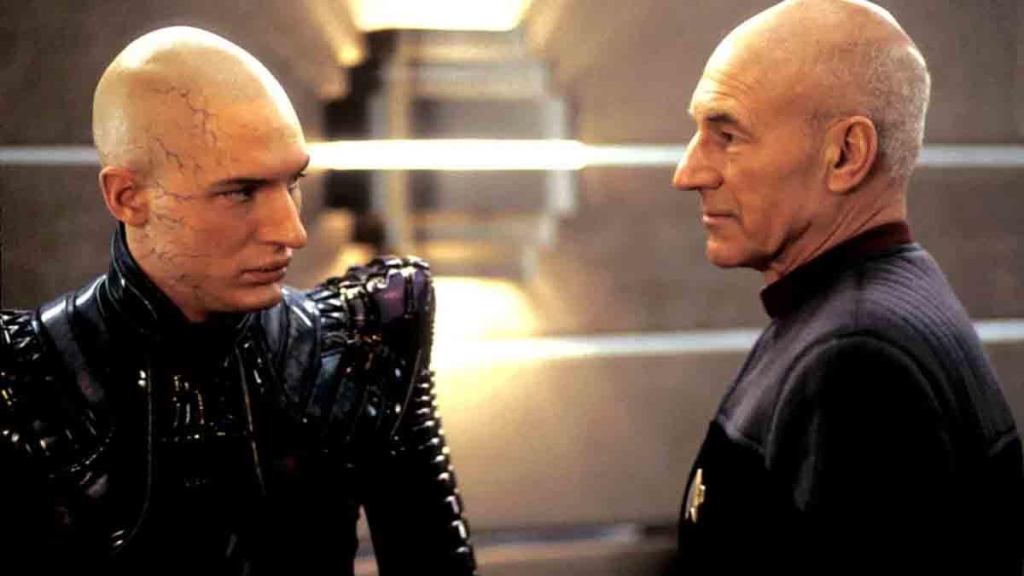
Sold to us as The Next Generation’s grand send-off, Nemesis instead arrived as a watered-down imitation of the beloved Wrath of Khan. A young Tom Hardy portrays Shinzon, a clone of Picard who leads a Romulan uprising. Unfortunately, the dour tone, uninspired action, and thwarting of traditional lore left Trekkies cold. Box office numbers reflected the widespread rejection, as this was the lowest-grossing Trek film ever released in theaters.
That said, Hardy’s character remains a fascinating antagonist. And the moment of Data’s sacrifice, to save the crew, is a standout. Patrick Stewart’s performance in the aftermath carried some emotional heft as well, but the introduction of B-4 (a prototype android “replacement”) blunted its impact. Critics at the time called it a limp finale, and for many fans, it was the end of an era that deserved better.
11) Star Trek: Insurrection
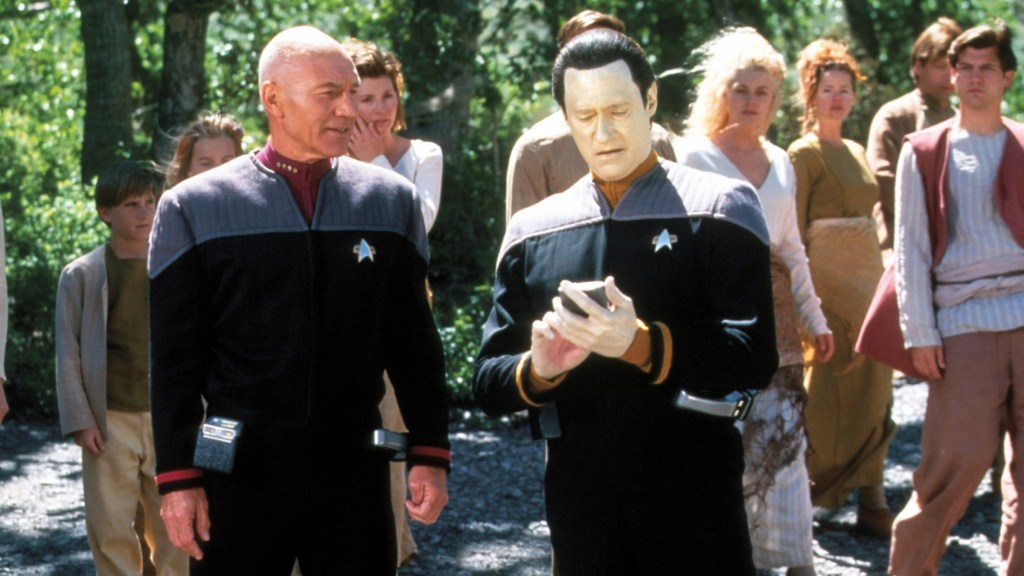
After the dark, operatic First Contact, Paramount was after something lighter. The result was Insurrection, a film that honestly feels like an odd amalgamation of forgettable TNG episodes. In the film, Picard and crew discover Starfleet’s plan to forcibly relocate the peaceful Ba’ku, prompting a moral stand that pits them against their own superiors.
While the movie has some great moments, the preachy, half-baked moralizing rubbed many fans the wrong way. With Roger Ebert claiming several of the creators themselves disagreed with the film’s takeaway and positing, “Maybe that’s why this ninth Star Trek saga seems inert and unconvincing.”
10) Star Trek: Generations
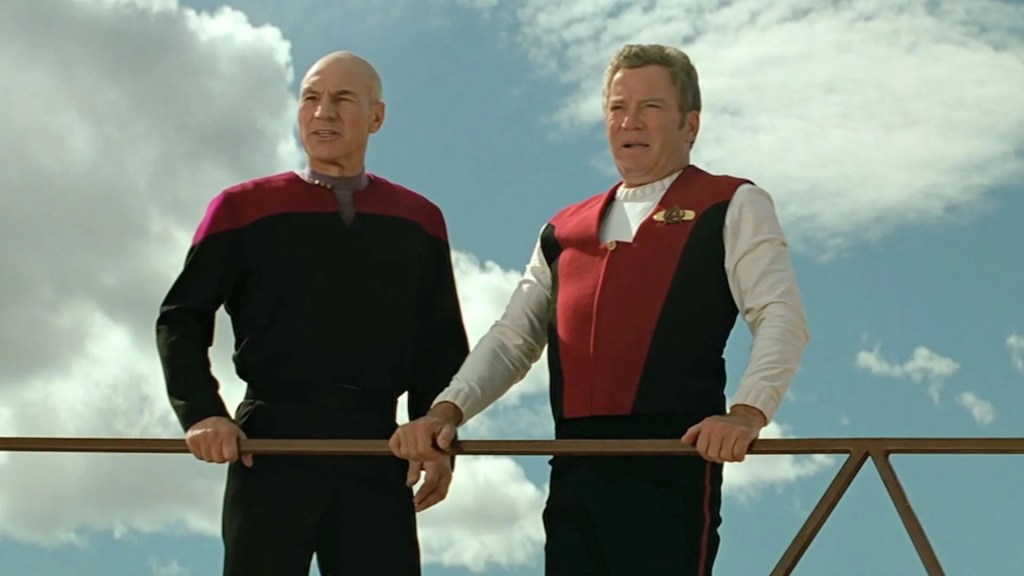
Bridging two beloved casts is a steep hill to climb. Generations finally gave fans Picard and Kirk on screen together, but the result was divisive. The Nexus plotline, an energy ribbon that grants one’s deepest desires, was intriguing; however, Kirk’s subdued death left audiences absolutely enraged.
The more striking moments in the movie include the crash of the Enterprise-D saucer section, which remains one of Trek’s more impressive practical effects sequences. Malcolm McDowell’s villain, Soran, was also a high point, injecting some nuance and immediacy into an otherwise weak narrative. Critics praised the ambition but skewered the execution, and fans today largely see it as an uneven handoff between generations.
9) Star Trek Into Darkness

Abrams’ second Kelvin film doubled down on spectacle, offering more warp-speed action and Benedict Cumberbatch as a mysterious villain later revealed (bizarrely) to be Khan. Yet, the attempt to mirror Wrath of Khan backfired. The inverted death scene, with Kirk in Spock’s place and Quinto’s howl of “Khan!” is now infamous among Trekkies.
Yet it’s not without merits. Cumberbatch brought menace, and the film’s commentary on militarism and drone warfare was a solid attempt at reaching some Reddenberry-esque ethical positioning, and Michael Giacchino’s score was epic. Still, it excels visually more than narratively, with the starship battle above Earth being an especially stunning sequence. Reviews were initially kind but have cooled over the years.
8) Star Trek Beyond
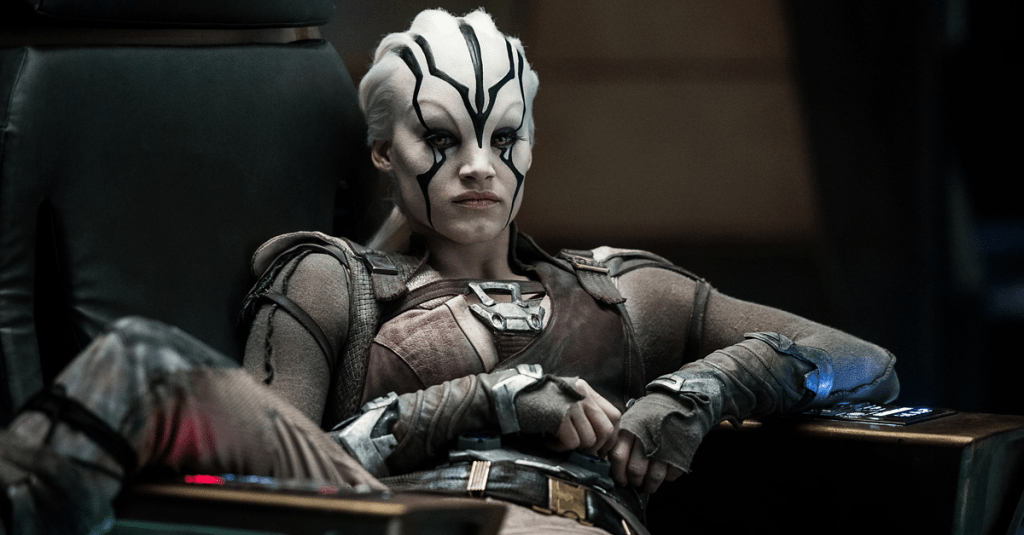
Justin Lin took the reins and shifted gears after the controversy of Into Darkness. Beyond stripped the Enterprise crew of their ship early on, scattering them across a hostile planet. This allowed smaller character pairings, i.e., Spock and McCoy, to shine. Karl Urban, in particular, totally nails McCoy’s humor and grit.
Idris Elba’s Krall wasn’t the most memorable villain, but his backstory as a forgotten Starfleet soldier was well done. And then there’s the wild “Sabotage” sequence, where Kirk deploys the Beastie Boys as a literal weapon of sonic destruction; a scene which was understandably divisive, but undeniably fun. Critics largely welcomed the course correction, though weak box office numbers were another signpost that Trek was straying too far from its roots.
7) Star Trek III: The Search for Spock
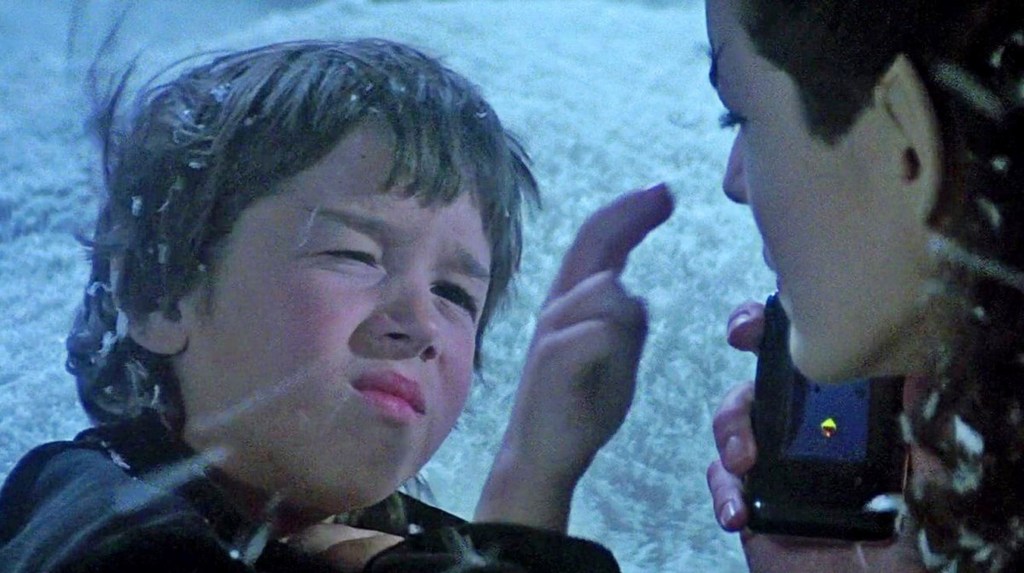
Following Spock’s death, Paramount faced a challenge: resurrect him without undoing Wrath of Khan’s power. Leonard Nimoy’s directorial debut handled it gracefully, with the Enterprise crew risking their careers to save their friend. Their theft of the Enterprise remains, to this day, a memorable triumph in the saga.
It’s also a strong entry thanks to Christopher Lloyd’s Klingon commander Kruge, a snarling, calculating villain who gives the movie teeth. The death of David Marcus also has a devastating impact on both Kirk and the audience. Ultimately, however, the slightly undercooked story and the awkward “Pon farr” subplot keep it hovering in the middle of the pack.
6) Star Trek (2009)
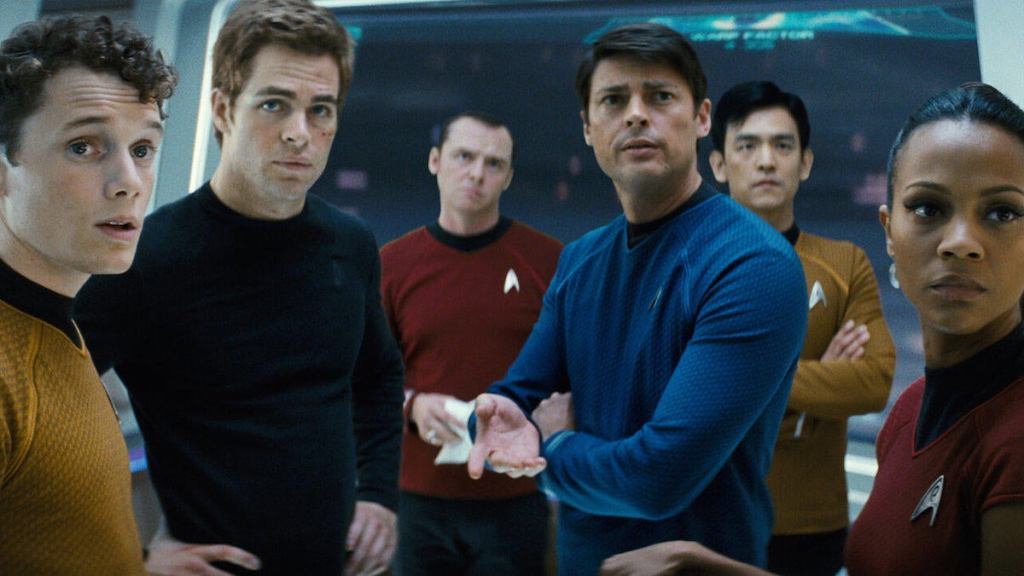
J.J. Abrams revitalized Trek with a bold move: the “Kelvin Timeline.” By creating an alternate history, he gave himself carte blanche to introduce new actors while keeping the original canon intact. Chris Pine captured Kirk’s swagger, while Zachary Quinto gave Spock a more vulnerable side. Karl Urban’s Bones stole nearly every scene.
The destruction of Vulcan shocked fans and set immediate stakes, while Michael Giacchino’s rousing score gave the film its beating heart. Critics embraced it as a slick reboot, though longtime Trekkies believe the Kelvin Timeline films as a whole favor action over philosophy, and don’t truly feel like the Trek they know and love. Still, it succeeded in bringing Trek back to cultural relevance for a younger generation of sci-fi lovers.
5) Star Trek: The Motion Picture
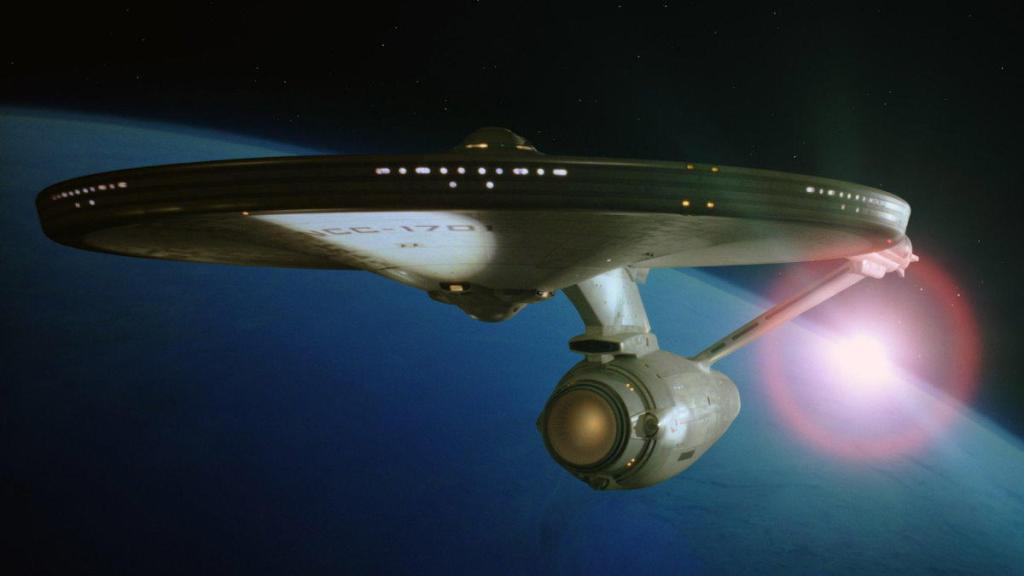
The first Trek film swung for the fences. Directed by Robert Wise (The Day the Earth Stood Still), the movie embraced grand visuals and slow storytelling, akin to 2001: A Space Odyssey, as opposed to traditional sci-fi showmanship. The mystery of V’Ger, an evolved Voyager probe, pushed big ideas about life and consciousness, prioritizing existential pondering over an exciting pace.
Audiences remain divided. Some call it boring; others see it as pure, unfiltered science fiction. And for many, it carries the weight of nostalgia, as it was the first Trek to screen in theaters. Jerry Goldsmith’s soaring score and the first widescreen reveal of the Enterprise remain iconic. While box office earnings fell short of expectations, the 2022 TMP Director’s Cut restored its reputation somewhat, with many praising its obvious artistry in retrospect. Ultimately, it’s a cerebral tale that feels more aligned with TOS and early TNG than any of the other films.
4) Star Trek: First Contact
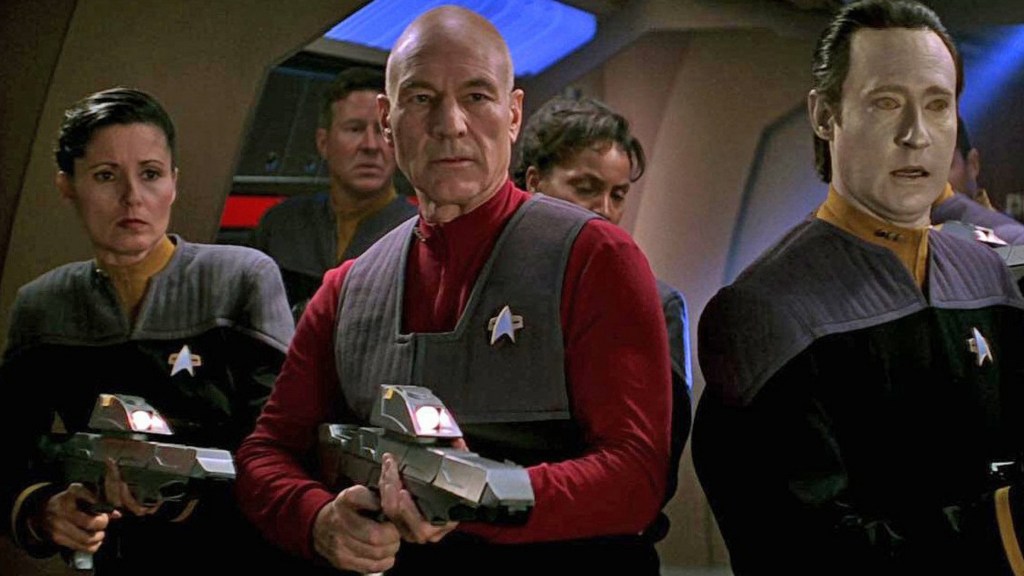
Jonathan Frakes directed what is largely considered the Next Generation crew’s best outing, upping the ante. The Borg were already terrifying, but the addition of Alice Krige’s Borg Queen gave them an entirely new dimension. Patrick Stewart’s Picard, haunted by his assimilation in The Best of Both Worlds, brought the connective tissue along with an intense rawness.
The dual timeline (Picard battling the Borg aboard the Enterprise while Riker and Geordi help Zefram Cochrane achieve warp flight) proved a great tonal balance and respite from the more brutal scenes. James Cromwell’s performance as the reluctant Cochrane is also noteworthy. Critics at the time hailed it as one of Trek’s best, and it remains the only TNG film ever to reach the heights of the TV show it was based on.
3) Star Trek VI: The Undiscovered Country

Nicholas Meyer returned to direct this Cold War allegory, released just as the Soviet Union was collapsing. The Klingon Empire faces disaster, and Kirk, who is still embittered by his son’s death, struggles with prejudice as peace talks unfold. Christopher Plummer’s Shakespeare-quoting General Chang is one of Trek’s finest villains, and the film’s themes land superbly.
The courtroom drama and political intrigue aspects made for an endlessly rewatchable movie that even turned some casual fans into Trekkies. It’s widely praised as a sharp return to form following Trek 5, one of the franchise’s worst entries. The final shot of the Enterprise sailing into the stars gives the TOS crew a fitting goodbye and closes the door to the original era.
2) Star Trek IV: The Voyage Home
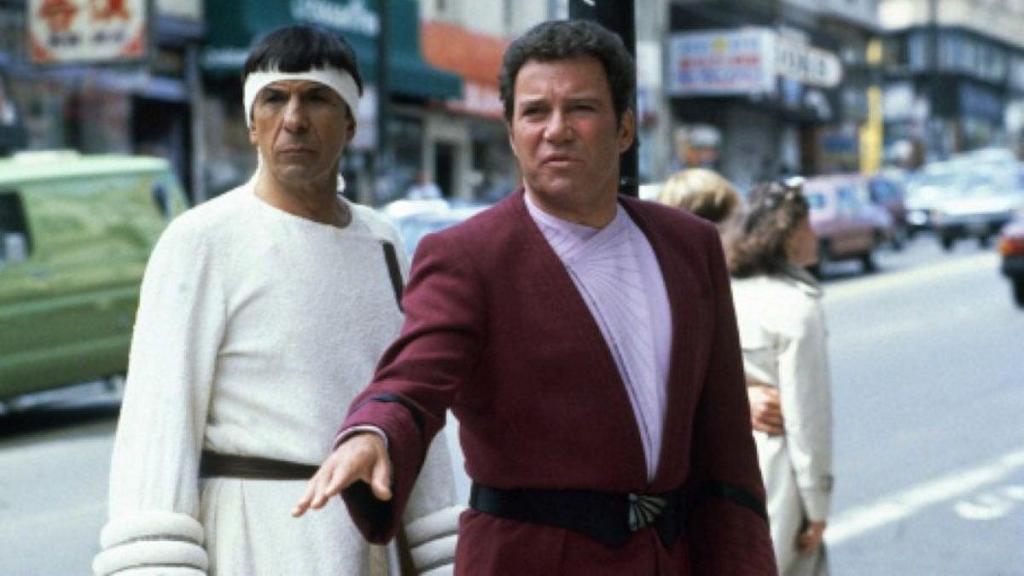
Known affectionately as “the one with the whales,” this film ditched villains entirely. Instead, a mysterious probe threatens Earth, and the crew must travel back to 20th-century San Francisco to retrieve humpback whales. The comedy is effortless: Scotty trying to talk to a computer mouse, Spock nerve-pinching a punk on a bus, and Chekov asking passersby about “nuclear wessels.”
However, under all the humor lies a pointed environmental message that still resonates and reflects the core identity of Star Trek. It was widely beloved for its accessibility, as no prior knowledge of Trek was required to enjoy it. And its endearing optimism is infectious while never bordering on preachy. For many, this is the most purely joyful Trek film ever made.
1) Star Trek II: The Wrath of Khan
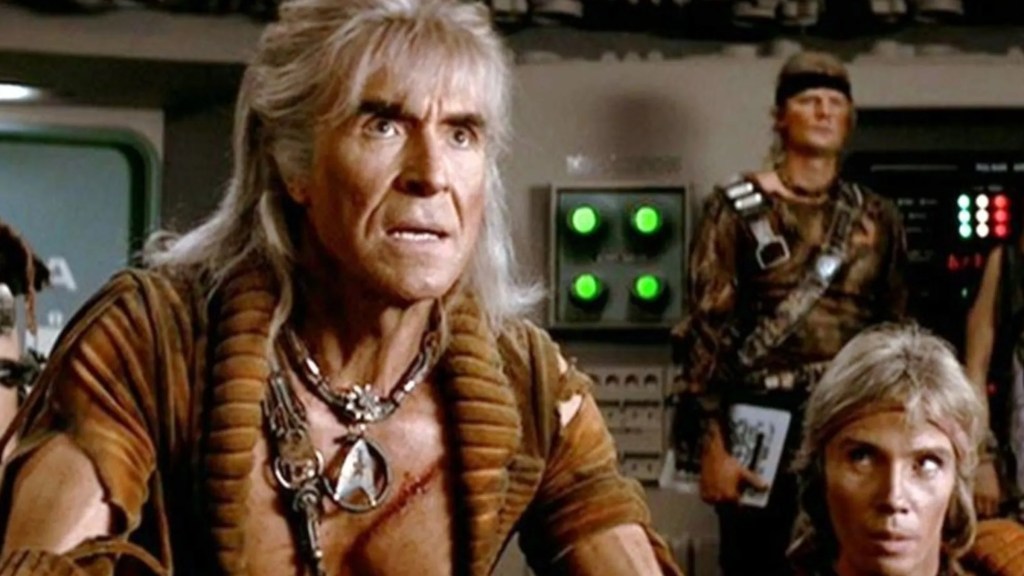
The undisputed champion in many Trek circles. Nicholas Meyer’s Wrath of Khan rescued the franchise after the lackluster reception of The Motion Picture. Ricardo Montalbán’s Khan is the first operatic big bad, so when he vows revenge on Kirk, the stakes are high. James Horner’s score and the naval-inspired direction also elevated this film above the others.
In addition to the excellent character work, Spock’s sacrifice is unforgettable. “The needs of the many outweigh the needs of the few… or the one.” The farewell between Shatner and Nimoy remains the heart and soul of Star Trek. Critics called it a revelation in 1982, and four decades later, it’s still the best cinematic outing from the franchise.
Want to stay up to date on the biggest geek entertainment news? Add us as a preferred source in Google – HERE.

